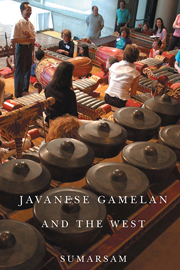Introduction
Published online by Cambridge University Press: 05 September 2013
Summary
Encountering foreign cultures has been an inescapable part of life in Asia for many centuries. Indonesians have come into contact with many cultures, three of which—Hindu, Islamic, and Western—have had significant effects on the development of their own. Each encounter has had a different character, and a hybrid culture eventually formed.
I use the term “hybrid” or “hybridity” to denote contact between cultures that bring about a wide register of multiple identity experiences and intensive cultural communication. Hybridity is concerned with intercultural encounters in which people from different traditions or worldviews come into contact with one another, followed by the changing hands of cultural artifacts. These artifacts are not only observed and handled by the recipient, but also reproduced in a variety of ways. Such an intercultural exchange brings about both change to and continuity of cultural tradition, as people in the home culture adopt, adapt, reject, or negotiate the ideology of the impinging culture. Such change and continuity will lead the tradition not only to a happy fusion and synthesis, but also to ambiguity and ambivalence; hence, the dynamic of hybridity.
When people in what is now Indonesia made contact with Hinduism and Islam, they generally expressed flexibility and tolerance toward these foreign religions and cultures; the means by which they came to Java—via trade, instead of conquest—made this possible.
- Type
- Chapter
- Information
- Javanese Gamelan and the West , pp. 1 - 8Publisher: Boydell & BrewerPrint publication year: 2013



